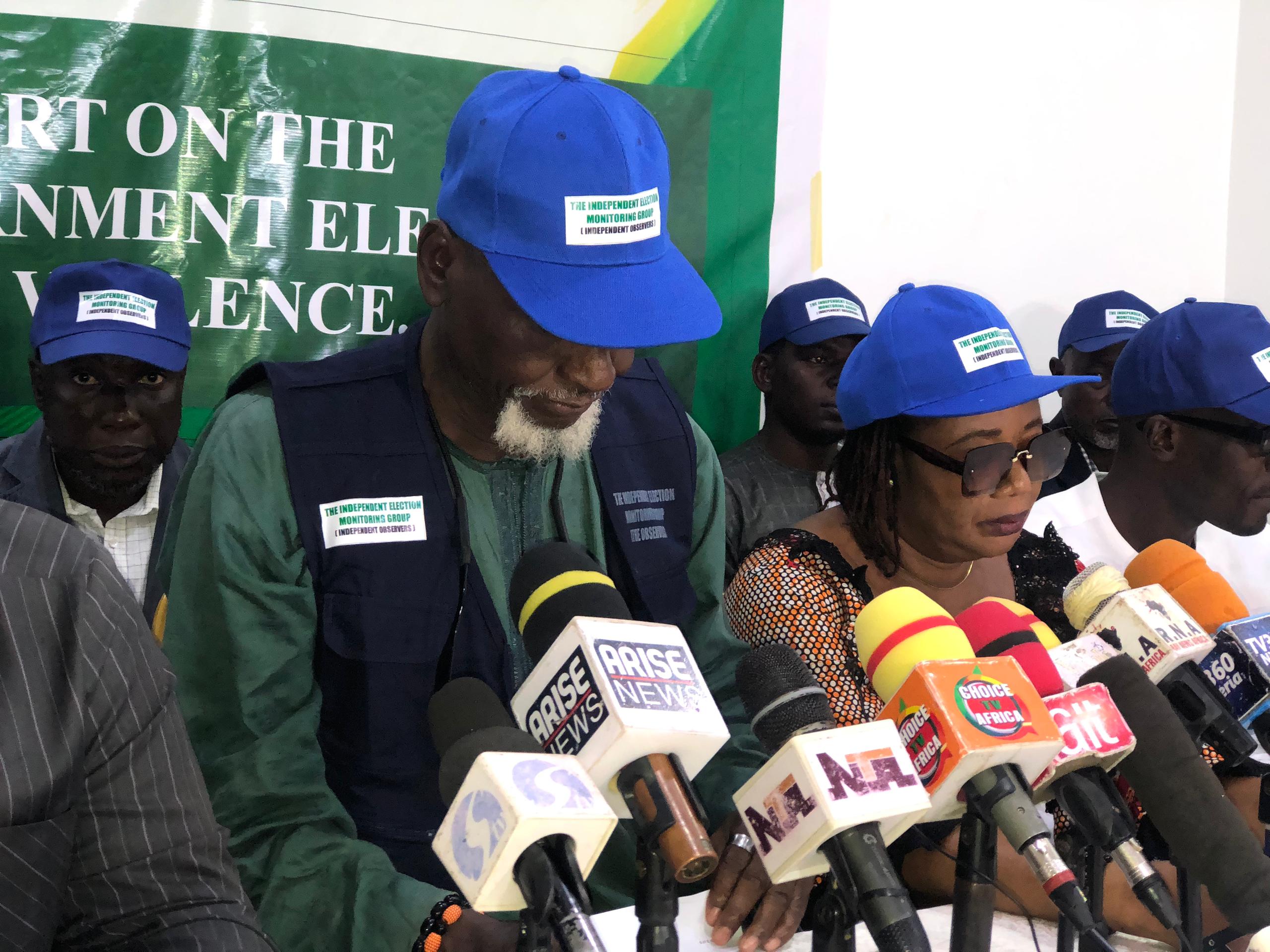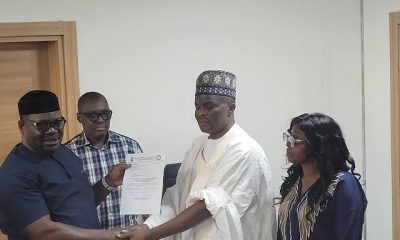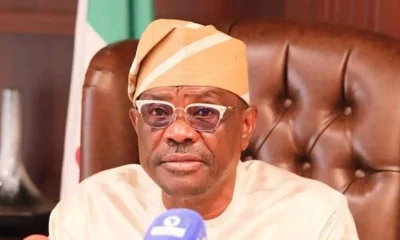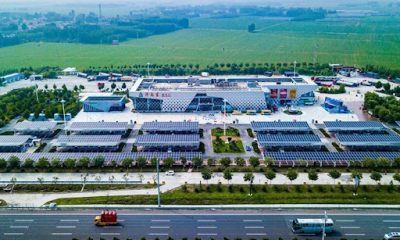Uncategorized
China-Thailand railway under smooth construction
By Sun Guangyong, People’s Daily
The construction of the China-Thailand railway, a landmark project representing the high-quality construction of the Belt and Road Initiative (BRI), is currently under full swing.
Crossing the most densely populated areas in Thailand, the railway will inject new impetus into the development of the country’s economy and transportation.
Upon completion, the railway is expected to boost economic development along its route. It will be connected to the China-Laos railway, forming a railroad artery that crosses the Indochina Peninsula and accelerating infrastructure connectivity in the region.
Pak Chong district in northeast Thailand’s Nakhon Ratchasima province is an important gateway connecting central Thailand and the country’s northeastern provinces. The Nakhon Ratchasima province is the terminal of the first phase project of the China-Thailand railway. Currently, the construction of the first phase project is in full swing.
At the construction site of the project, piers of viaducts are being erected along the direction of an existing track. To ensure the quality of the construction, Viloth, deputy head of a construction supervising team of the project, takes a boom lift every week to dozens of meters high to inspect the top of the piers.
“The Chinese teams have brought advanced philosophies, modern technologies and management experiences to Thailand’s railway construction. The building of the railway not only better connects Thailand and China, but also brings the two peoples closer,” said Viloth.
The China-Thailand railway promotes the idea of green transport and has applied green and low-carbon technologies during its construction. It will be built into a green railway that features technological innovation and ecology-friendly development.
Apart from Nakhon Ratchasima province, the construction of the China-Thailand railway has also commenced in Phra Nakhon Si Ayutthaya, Saraburi and other provinces along the route.
The section 4-3 in Phra Nakhon Si Ayutthaya province is the largest one of the project. So far, 1,912 foundation piles have been driven, 106 bearing platforms built and 17 piers erected. Prefabricated beams are neatly placed at the site and will be used for the viaduct construction.
“We completed a blueprint for the civil works of the first phase project in June 2019. The civil works currently underway include bridges, roadbeds, tunnels, and station buildings,” said Ma Shengshuang, head of the Thai branch of China Railway Design Corporation.
The first phase project connects Bangkok and Nakhon Ratchasima province, and the second phase will extend the track to Nong Khai province, an important town for border trade in northeast Thailand that faces Lao capital Vientiane just across a river. The second phase is expected to connect the railway with the China-Laos railway.
The Krung Thep Aphiwat Central Terminal in Bangkok will be made into a transfer station for the China-Laos-Thailand high-speed railway and the Thailand-Malaysia-Singapore high-speed railway.
According to Nirut Maneephan, governor of the State Railway of Thailand, 16.72 percent of the China-Thailand railway’s first phase project construction had been completed as of mid-January this year, and the railway is expected to be put into operation in 2027.
The second phase of the project is expected to start in 2024, and aims to open in 2028, he said.
Recently, a delegation of Thai railway and customs officials visited Laos to discuss cooperation. The China-Laos-Thailand railway is likely to cut the cost of cargo transport by 30 to 50 percent in the next three to five years.
Thailand has stepped up its efforts in the past year to integrate itself into the China-Laos-Thailand railway, including upgrading its domestic transport network and railway facilities, and improving the capacity of cargo warehousing, distribution and inspection in its northeast region.
It is believed that the China-Laos-Thailand railway will significantly promote sub-regional development and bring the Indochina Peninsula into an era of high-speed railways.
Nirut noted that the high-speed railway network will not only connect regions in Thailand, but also form a railway system of the ASEAN. When all high-speed railway projects are connected as a whole, they will become a gigantic railway network for passengers and cargo that links China, Malaysia, Singapore, Laos and Thailand.
Surasit Thanadtang, director of the Thai-Chinese Strategic Research Center under the National Research Council of Thailand, said the railway network is expected to strengthen connectivity among Southeast Asian countries and help them gain more market opportunities.
The alignment between the Master Plan on ASEAN Connectivity 2025 and the BRI will further strengthen connectivity, lower logistics costs, and promote personnel exchanges, thus creating more opportunities for countries along the Belt and Road and promoting regional integration.
Uncategorized
Form I-130 Approved: A Step-by-Step Guide to the Next Stages
Obtaining approval of Form I-130, Petition for Alien Relative is one of the key milestones in the immigration process. It unveils the process of the next moves in order to bring your loved one to the United States of America. Perhaps they are in the United States or perhaps they are in another country. It is crucial to know what comes next. Alright, let’s define the most crucial questions you may have.
What to do after Form I-130 is approved
It takes several months, after which USCIS will send you a notice that your Form I-130 has been approved. In case your relative resides in another country other than the United States the case will be taken to the National Visa Center (NVC). If they are in the U.S, whether to apply for adjustment of status or to go through consular processing is the next step to be taken.
All the applicants apart from those in the USA will have their case numbers allocated to them by the NVC together with instructions. This encompasses paying fees and completing the form I-130 Petition alien relative and the DS-260 form called the Immigrant Visa and Alien Registration Application. It is important that you be responsive to emails, at least to the official ones to check for updates.
If your relative is in the U.S., you will proceed filing Form I-485, Application to Register Permanent Residence or Adjust Status.
How to apply for Adjustment of Status if you are in the US
Adjustment of Status (AOS) enables Your Relative to get an LPR status without having to travel out of the country. Here’s how to navigate this process:
- Check Eligibility: This should guarantee that the beneficiary is in the United States legally and meets all the requirements of the program.
- File form I-485: Complete and file Form I-485 (Application to Register Permanent Residence or Adjust Status) which is used in changing of immigration status to that of a permanent resident. A general rule of thumb to reduce delay as much as possible is to lay as much accuracy as possible from the onset of the project.
- Gather Required Documents: Most organizations require that you submit some documents Among the documents include:
- Form I-130 approval notice.
- Passport and current visas.
- The form with the name Arrival/Departure Record, also known as I-94.
- Two passport-style photos.
- The results of the medical examination are contained in form I-693.
- Evidence of a relationship with the U.S. citizen or a permanent resident.
- Pay the Fees: The costs associated with a Form I-485 depend on the applicant’s age and other factors of his/her personal situation. Make sure you submit your application with the right fee.
- Attend the Biometrics Appointment: Applicants are required to submit the application and after some time, USCIS will reschedule for fingerprint and photos to be taken. Attendance is crucial.
- Prepare for the Interview: Nevertheless, most applicants will have to go for an interview at a local office of the USCIS. Check your application and gather whatever proof to support your case that you can.
How to apply for consular processing if you are outside the US
For the beneficiaries residing in other countries they then undergo consular processing. Here’s how to handle this process:
- Wait for NVC Notification: Once the I-130 has been approved you will be contacted with a case number and additional directives from NVC.
- Pay Fees and Submit DS-260: When the applicant receives a case number, they should then process the immigrant visa processing fees and fill the Form DS-260.
- Gather Supporting Documents: Gather different documents in order of, barring the letters:
- Your passport, which must be valid for at least six months of the intended stay.
- Birth certificate.
- Police certificates.
- Medical examination results.
- Affidavit of Support or the specific form used for it is I-864.
- Attend the Visa Interview: The last stage is the Visa interview that takes place at a US embassy or a consulate. They should not lie, and they should be ready or willing to answer questions about their relationship and their background.
- Receive Your Visa: When granted you get a stamp on your passport through which you can be able to travel to the United States of America.
It is often not easy to know what to do after Form I-130 has been approved, however it’s important to be informed and organized. No matter whether you are changing your status within the territory of the United States or opting for consular processing, it is important to know what steps to take in order to reach the desired end. The receipt of a green card. Be as organized as you can, keep record of the documents and when necessary, seek legal help. All the best on this great adventure that lies ahead of you!
Uncategorized
Awe Progressive Group Urges Gov. Sule to Consider Hamza Moyi for LGA Chairmanship
From Leo Zwànke, Lafia
Awe Local Government Area Progressive Group has called on the Governor of Nasarawa State, Engineer Abdullahi Sule, to consider Hon. Hamza Ibrahim Moyi for the position of Chairman of the Awe Local Government Council. This appeal comes as the governor and the All Progressives Congress (APC) State Working Committee are set to decide on the candidate for the chairmanship post.
In a press release signed by the group’s spokesperson, Muhammed Musa on Saturday and sent to journalist, the group highlighted Moyi’s contributions to the development of Awe Local Government Area in his capacity as the Senior Special Assistant (SSA) to the governor on Sports. According to Musa, Moyi’s name is among the three submitted for consideration by the governor.
The statement commended Moyi’s dedication to the local government, particularly in areas such as security, education, healthcare, agriculture, and infrastructural development. The group believes that his track record makes him the best fit for the position of council chairman.
“Hon. Hamza Ibrahim Moyi has worked tirelessly as the SSA to the governor, ensuring that Awe Local Government remains secure and that development projects are carried out effectively. His efforts in the areas of education, health, and agriculture have had a direct and positive impact on the people of the local government,” the statement read.
The group further emphasized that Moyi’s leadership has played a pivotal role in fostering peace and stability within the local government, particularly in addressing security challenges that have affected the area in the past.
“We appeal to His Excellency, Governor Abdullahi Sule, to recognize the efforts of Hon. Moyi and give him the opportunity to serve as the Chairman of Awe Local Government Council. His experience, dedication, and commitment to the progress of our local government make him the ideal candidate for this position,” the statement added.
The group expressed confidence that Moyi’s leadership would bring further development to Awe LGA and strengthen its role within the state.
The decision on the chairmanship is expected to be made soon as political activities in Nasarawa State gear up ahead of the local government council elections.
Uncategorized
Rivers LG Polls: Observers Blame Gov Fubara’s Use Of Non-State Actors for Post-Election Violence ***Exonerate Police of Any Wrongdoing Independent observers have condemned the violence and arson that marred the Rivers State local government elections, blaming Governor Siminalayi Fubara’s supporters for the chaos. The Independent Election Monitoring Group, in its preliminary report, cited widespread irregularities, including the lack of election materials, non-use of electoral registers, and dubious declaration of results. Speaking at a press conference, Executive Director, Dr. Emmanuel Agabi, said Governor Fubara’s insistence on conducting the elections despite court rulings and security concerns has been criticized as a desperate bid to consolidate power. Notably, the report cleared the Nigerian Police of any wrongdoing, highlighting their withdrawal from the election due to a Federal High Court ruling. The report recommends a full investigation into the arson attacks, nullification of election results, deployment of federal security forces, and dialogue between the governor and opposition parties. According to the report, the use of violence by Fubara’s supporters in the wake of the election reflects the Governor’s desperation to suppress opposition and maintain control of the political narrative. By allowing his supporters to engage in such acts of violence, it added that Fubara has contributed to the breakdown of law and order in Rivers State. “The Rivers State local government elections and the subsequent acts of arson represent a low point in the state’s political history,” the report said. “Obviously , the state local government elections have exposed the fragility of the democratic process in the state. “Governor Siminalayi Fubara’s determination to consolidate political power through the Action Peoples Party (APP) and disregard for legal rulings has led to a crisis that threatens both the democratic fabric of Rivers State and the security of its citizens. “The refusal to honor court rulings, combined with the manipulation of electoral processes and violent suppression of opposition, demonstrates a clear disregard for the rule of law. “It is evident that Governor Fubara’s supporters, driven by his desperation to build and secure a political stronghold, are responsible for the violence and destruction that followed the elections. “The state’s political crisis will only worsen if urgent steps are not taken to restore order, accountability, and respect for democratic principles. “The use of arson as a tool for political intimidation is not only reprehensible but dangerous, as it has the potential to escalate into broader conflict. If unchecked, this pattern of governance could erode what remains of democratic practice in Rivers State. “It is therefore imperative that Governor Fubara and his administration give peace a chance by embracing dialogue, respecting court rulings, and adhering to democratic norms. “The Governor must realize that power, when pursued at the expense of the people’s trust and the rule of law, is unsustainable. “For the future of Rivers State, and indeed Nigeria’s democratic experiment, it is crucial that stakeholders at all levels work together to address the deep-seated issues that have emerged from this election. “This includes reforming the electoral system, ensuring accountability for violent actions, and fostering a political culture where power is gained through the people’s will, not through coercion, manipulation, or violence. “In the words of former President Goodluck Jonathan, the political crisis in Rivers State is reminiscent of the crisis in the old Western region. It is a warning sign of what could become a larger national issue if the political situation in Rivers State is not addressed. “It is the responsibility of all concerned parties, including the federal government, to intervene and ensure that Rivers State does not spiral into anarchy. Only through collective action can the state be returned to peace, stability, and genuine democratic governance.”

***Exonerate Police of Any Wrongdoing
Independent observers have condemned the violence and arson that marred the Rivers State local government elections, blaming Governor Siminalayi Fubara’s supporters for the chaos.
The Independent Election Monitoring Group, in its preliminary report, cited widespread irregularities, including the lack of election materials, non-use of electoral registers, and dubious declaration of results.
Speaking at a press conference, Executive Director, Dr. Emmanuel Agabi, said Governor Fubara’s insistence on conducting the elections despite court rulings and security concerns has been criticized as a desperate bid to consolidate power.
Notably, the report cleared the Nigerian Police of any wrongdoing, highlighting their withdrawal from the election due to a Federal High Court ruling.
The report recommends a full investigation into the arson attacks, nullification of election results, deployment of federal security forces, and dialogue between the governor and opposition parties.
According to the report, the use of violence by Fubara’s supporters in the wake of the election reflects the Governor’s desperation to suppress opposition and maintain control of the political narrative.
By allowing his supporters to engage in such acts of violence, it added that Fubara has contributed to the breakdown of law and order in Rivers State.
“The Rivers State local government elections and the subsequent acts of arson represent a low point in the state’s political history,” the report said.
“Obviously , the state local government elections have exposed the fragility of the democratic process in the state.
“Governor Siminalayi Fubara’s determination to consolidate political power through the Action Peoples Party (APP) and disregard for legal rulings has led to a crisis that threatens both the democratic fabric of Rivers State and the security of its citizens.
“The refusal to honor court rulings, combined with the manipulation of electoral processes and violent suppression of opposition, demonstrates a clear disregard for the rule of law.
“It is evident that Governor Fubara’s supporters, driven by his desperation to build and secure a political stronghold, are responsible for the violence and destruction that followed the elections.
“The state’s political crisis will only worsen if urgent steps are not taken to restore order, accountability, and respect for democratic principles.
“The use of arson as a tool for political intimidation is not only reprehensible but dangerous, as it has the potential to escalate into broader conflict. If unchecked, this pattern of governance could erode what remains of democratic practice in Rivers State.
“It is therefore imperative that Governor Fubara and his administration give peace a chance by embracing dialogue, respecting court rulings, and adhering to democratic norms.
“The Governor must realize that power, when pursued at the expense of the people’s trust and the rule of law, is unsustainable.
“For the future of Rivers State, and indeed Nigeria’s democratic experiment, it is crucial that stakeholders at all levels work together to address the deep-seated issues that have emerged from this election.
“This includes reforming the electoral system, ensuring accountability for violent actions, and fostering a political culture where power is gained through the people’s will, not through coercion, manipulation, or violence.
“In the words of former President Goodluck Jonathan, the political crisis in Rivers State is reminiscent of the crisis in the old Western region. It is a warning sign of what could become a larger national issue if the political situation in Rivers State is not addressed.
“It is the responsibility of all concerned parties, including the federal government, to intervene and ensure that Rivers State does not spiral into anarchy. Only through collective action can the state be returned to peace, stability, and genuine democratic governance.”
-

 Business14 hours ago
Business14 hours agoOkpella Monarch: Obaseki Ratified Kingmakers Decision, End 5years leadership Vacuum
-

 Banking10 hours ago
Banking10 hours agoFree Food Saga: Akpabio quoted out of context-CSO
-

 Foreign15 hours ago
Foreign15 hours agoSci-tech innovation fuels China’s high-quality development
-

 Entertainment7 hours ago
Entertainment7 hours agoDavido Declares ‘Timeless’ His Best Album
-

 Entertainment7 hours ago
Entertainment7 hours ago‘Adire’ Secures Four Nominations at the Best of Nollywood Awards
-

 Business7 hours ago
Business7 hours agoWike Urges Nigerians to Pay Taxes for Improved Social Services
-

 Foreign9 hours ago
Foreign9 hours agoQinling Mountains better safeguarded with comprehensive digital platform
-

 Foreign9 hours ago
Foreign9 hours agoExpressway service station in Shandong achieves carbon neutrality






